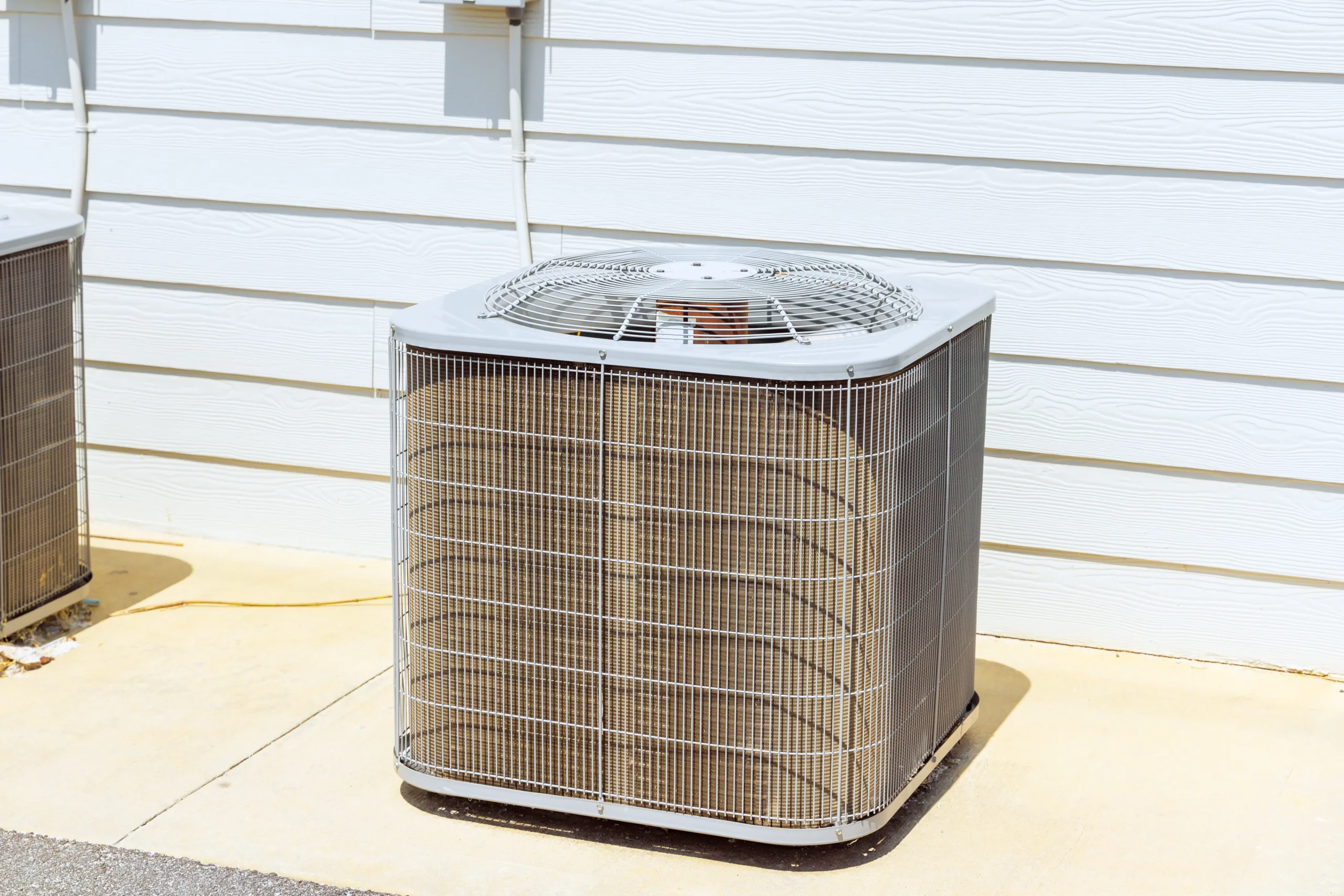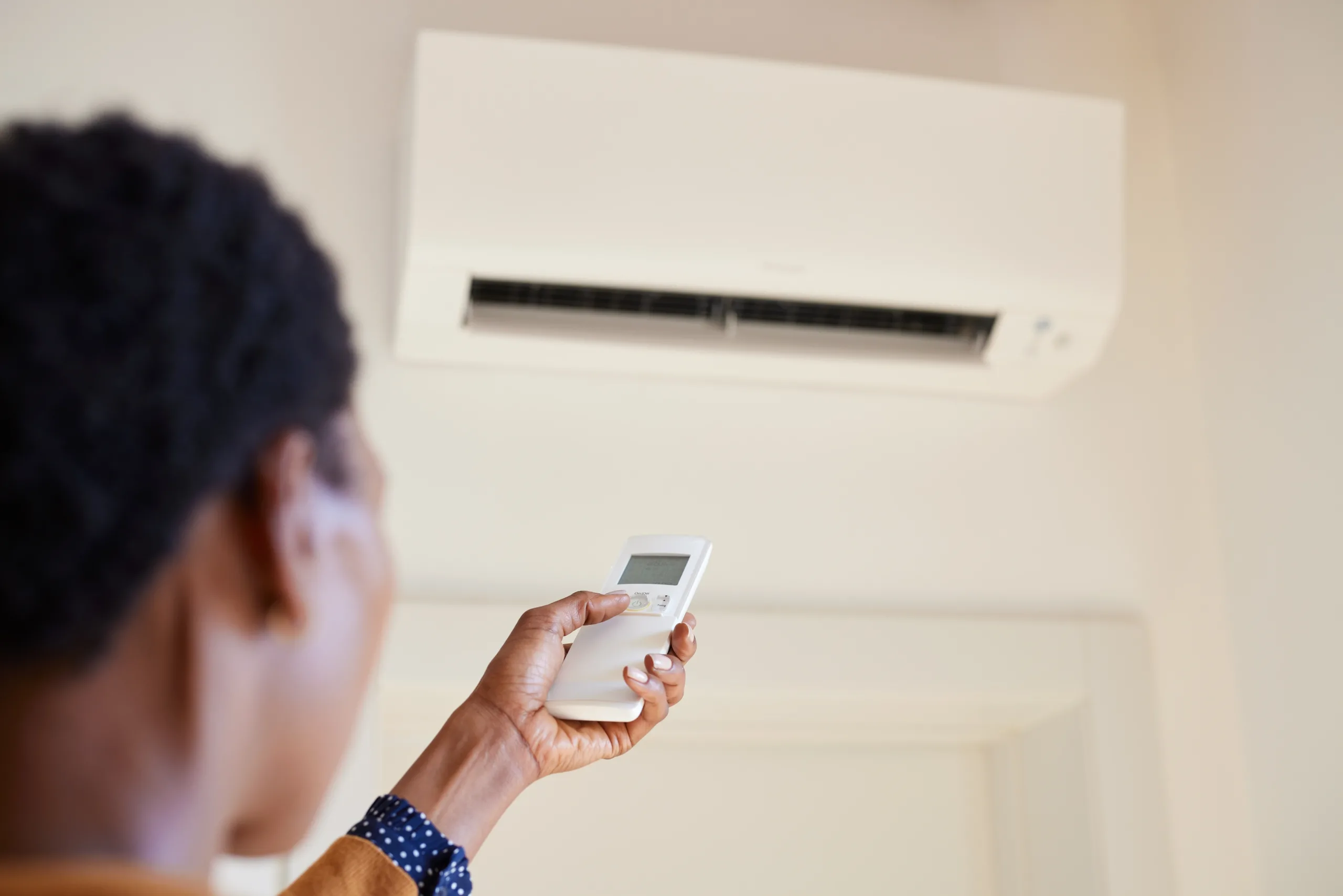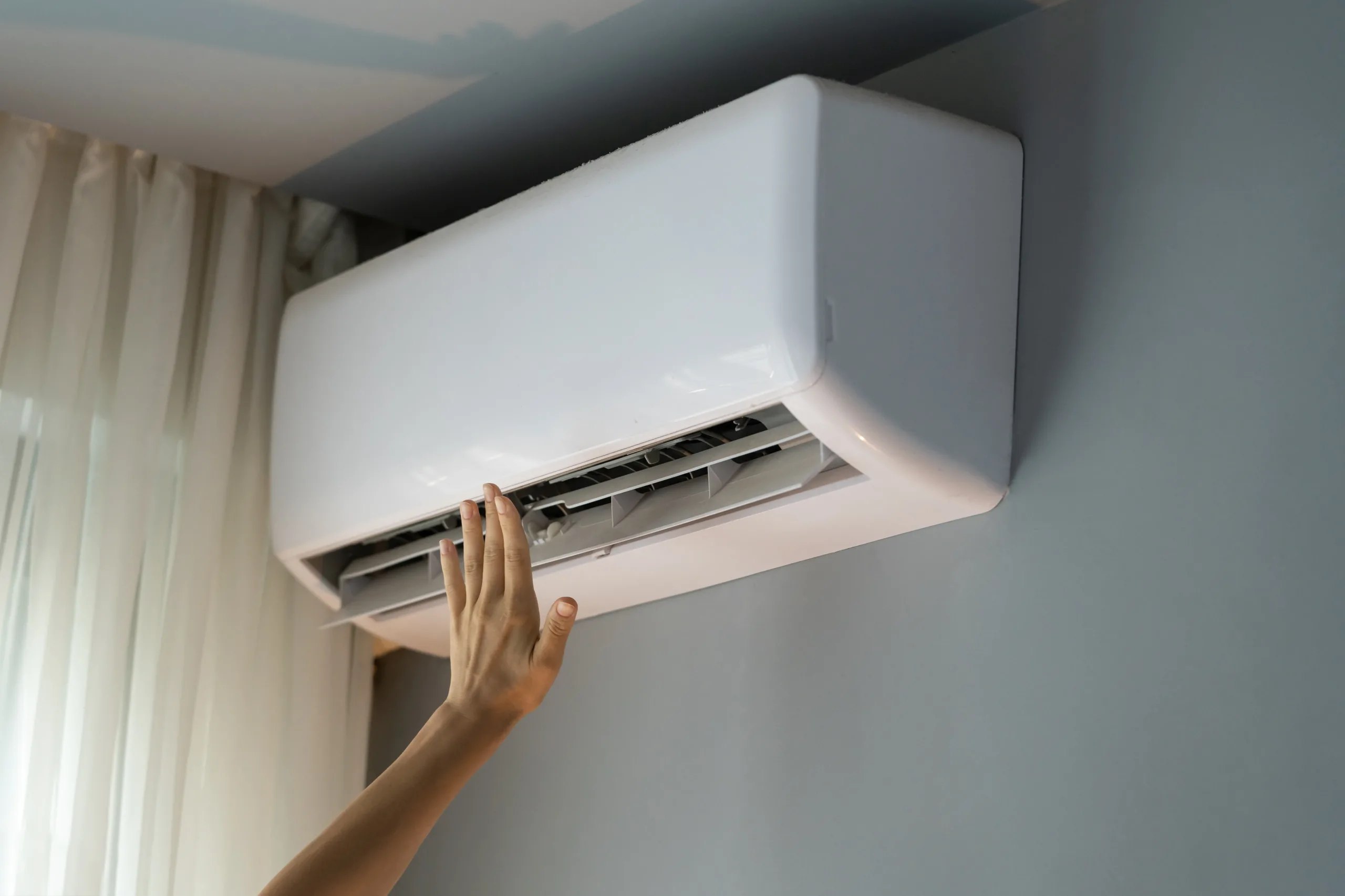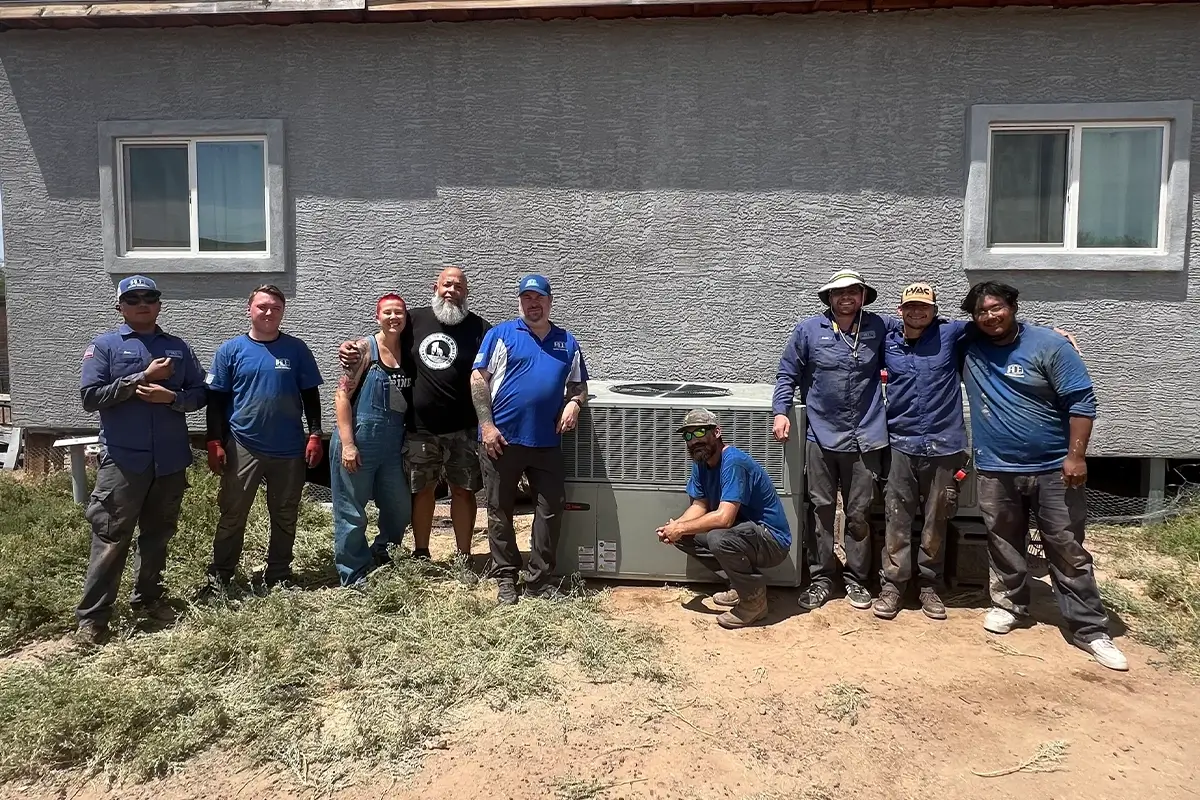
Understanding Air Conditioning Systems
Air conditioning systems are essential for maintaining a comfortable indoor environment, especially during hot summer months. In this guide, we’ll cover the basics of how air conditioners work and the different types of AC units available.
How Air Conditioners Work
Types of Air Conditioners
There are several types of air conditioning systems designed to meet different cooling needs:
- Central air conditioning systems: Ideal for cooling entire homes, these systems use a single outdoor unit connected to a network of ducts.
- Ductless mini-split systems: Perfect for homes without ductwork, these systems have an outdoor unit connected to one or more indoor air handlers.
- Window AC units: These self-contained units are installed in a window and are best suited for cooling single rooms.
- Portable AC units: Mobile and compact, these units can be moved from room to room as needed.

Air Conditioner Professional Installation Tips
Proper installation is key to ensuring your air conditioner operates efficiently and effectively. Here are some essential tips to keep in mind when installing an AC unit.
Choosing the Right Air Conditioner
Before installing an air conditioner, it’s crucial to select the right size unit for your space. An AC unit that’s too small won’t effectively cool your home, while an oversized unit will cycle on and off frequently, wasting energy and wearing out components prematurely. Factors to consider when sizing your air conditioner include:
– Square footage of the area to be cooled
– Local climate
– SEER rating (energy efficiency)
– Budget
– Insulation levels and window quality in your home
Consult with a professional at ACE Home Services to help determine the best AC unit for your needs. They can perform a thorough load calculation to ensure you get the right size unit for optimal performance and efficiency.
Smart AC Products
When shopping for a new air conditioner, consider investing in smart AC products that offer enhanced features and connectivity. Some examples include:
– Smart thermostats: Allow you to control your AC remotely via a smartphone app and can learn your preferences over time.
– Wi-Fi enabled AC controllers: Enable remote control and monitoring of your air conditioner.
– Smart air conditioners: Come with built-in Wi-Fi and can be controlled via voice commands or a mobile app.
– Smart sensors: Can detect occupancy, temperature, and humidity levels to automatically adjust your AC settings for optimal comfort and efficiency.
These smart products can provide valuable insights into your energy usage, help you identify potential issues before they become major problems, and allow you to control your AC system from anywhere. Find a range of smart thermostats in this Best Smart Thermostats of 2024 Consumer Report.
Professional Installation Checklist
While some AC units, like window or portable models, can be installed by homeowners, it’s generally best to hire a professional for more complex installations. A professional installer will:
– Properly size your AC unit based on a thorough load calculation
– Ensure proper placement of the outdoor unit and indoor components for optimal airflow and efficiency
– Safely handle refrigerant in compliance with EPA regulations
– Test the system to ensure proper operation and make any necessary adjustments
– Provide guidance on maintenance and warranty information
– Inspect and seal your home’s ductwork to minimize air leaks and improve efficiency
Maintenance Guides for Air Conditioners
Regular maintenance is essential for keeping your air conditioner running efficiently and preventing costly breakdowns. This section covers essential maintenance tasks and when to call a professional.
Seasonal AC Maintenance Tips
At the start of each cooling season, perform these maintenance tasks:
– Clean or replace the air filter to ensure proper airflow and indoor air quality. A clogged filter can reduce efficiency and lead to poor air quality.
– Clear debris from around the outdoor unit to maintain proper ventilation and prevent overheating.
– Check the condensate drain line for clogs and flush if needed to prevent water damage and mold growth.
– Inspect the ductwork for leaks or damage and seal if necessary to improve efficiency and air quality.
– Test the thermostat to ensure accurate temperature control and replace batteries if needed.
– Schedule a professional tune-up to identify and address any potential issues before they become major problems.
Routine AC Checks and Maintenance
Throughout the cooling season, regularly:
– Check and replace the air filter as needed (typically every 1-3 months) to maintain optimal airflow and air quality.
– Inspect the outdoor unit for signs of damage, such as bent fins or excessive wear, and clean the coils if necessary.
– Listen for unusual noises or odors coming from the AC unit, which may indicate a problem that needs professional attention.
– Monitor your energy bills for sudden spikes that could indicate an efficiency issue or malfunction.
– Keep the area around your indoor and outdoor units clean and clear of debris to ensure proper airflow and prevent damage.
When to Call a Professional for AC Maintenance
While some maintenance tasks can be done by homeowners, it’s important to know when to call a professional HVAC technician. Schedule professional maintenance if you notice:
– Insufficient cooling or uneven temperatures throughout your home, which may indicate a refrigerant leak or airflow issue
– Strange noises or odors coming from the AC unit, such as banging, screeching, or a burning smell
– Water leaks around the indoor unit or condensate drain line, which can cause damage and promote mold growth
– Frozen evaporator coils or refrigerant lines, which may indicate a refrigerant leak or airflow problem
– Electrical issues, such as tripped breakers, blown fuses, or flickering lights when the AC unit turns on
An annual professional tune-up can also help prevent breakdowns, extend the life of your AC unit, and ensure it operates at peak efficiency. During a tune-up, a technician will inspect, clean, and adjust various components to optimize performance and identify potential issues before they lead to costly repairs.
Optimizing Comfort and Energy-Efficiency
Balancing comfort and energy efficiency is key to getting the most out of your air conditioning system. Here are some tips for optimizing both.
Setting the Thermostat
Proper thermostat settings are crucial for maintaining a comfortable environment while optimizing energy efficiency. Most experts recommend setting your thermostat to 78°F (25.5°C) in the summer when you’re home and awake. You can raise the temperature a few degrees when you’re away or asleep to save energy.
Consider investing in a programmable or smart thermostat, which allows you to automatically adjust the temperature based on your schedule and preferences. These advanced thermostats can learn your habits over time and make adjustments accordingly, ensuring optimal comfort and energy savings.
Understanding SEER Ratings
The Seasonal Energy Efficiency Ratio (SEER) measures an air conditioner’s cooling output relative to the amount of energy it consumes. The higher the SEER rating, the more efficient the unit. As of 2023, the minimum SEER rating for newly manufactured AC units is 14, but some high-efficiency models can reach SEER ratings of 20 or higher.
When shopping for a new AC unit, compare SEER ratings to find the most efficient model within your budget. Keep in mind that higher SEER units may have a higher upfront cost but can result in significant energy savings over time. Look for the ENERGY STAR label, which indicates that a product meets strict energy efficiency guidelines set by the U.S. Environmental Protection Agency.
Cost-Benefit Analysis of Energy-Efficient ACs
Investing in an energy-efficient air conditioner can pay off in the long run through lower utility bills and potential tax credits or rebates. To determine the cost-benefit of an energy-efficient AC unit:
- Calculate the annual energy cost of the unit based on its SEER rating, your local electricity rates, and estimated usage.
- Compare the energy costs of different models over their expected lifetimes (typically 10-15 years).
- Factor in any available tax credits, rebates, or incentives for purchasing an energy-efficient unit.
- Consider the potential resale value of your home with an upgraded, efficient AC system.
- Evaluate your personal comfort preferences and the potential impact on your quality of life.
While energy-efficient AC units may have a higher initial cost, they can provide significant long-term savings and help reduce your carbon footprint.
Air Conditioner Rebates and Tax Credits
Many utility companies, local governments, and manufacturers offer rebates or tax credits for purchasing energy-efficient air conditioners. These incentives can significantly reduce the upfront cost of upgrading to a more efficient unit. Check with your local utility company or visit the ENERGY STAR website to find available rebates and tax credits in your area.
Some common incentives include:
– Federal tax credits for installing qualifying energy-efficient HVAC systems
– State or local government rebates for upgrading to high-efficiency AC units
– Utility company rebates or discounts for purchasing ENERGY STAR certified products
– Manufacturer rebates or promotions for specific high-efficiency models
Be sure to carefully review the terms and conditions of any incentives to ensure your purchase qualifies and to understand the application process.
Comparing Top Energy-Efficient AC Models
When shopping for an energy-efficient air conditioner, compare models from reputable brands known for their high-quality, efficient products. Some top energy-efficient AC brands include:
– Carrier
– Lennox
– Trane
– Rheem
– Daikin
– Mitsubishi Electric
– LG
Look for models with high SEER ratings, ENERGY STAR certification, and features like variable-speed compressors, multi-stage cooling, and advanced controls that can further enhance efficiency and comfort. Read customer reviews and consult with an HVAC professional to find the best model for your specific needs and budget.
The Role of Insulation in Keeping Your Home Cool
Proper insulation plays a crucial role in maintaining a comfortable indoor environment and reducing the workload on your air conditioning system. Insulation helps prevent heat from entering your home during the summer, making it easier for your AC unit to maintain your desired temperature.
Types of Insulation
There are several types of insulation commonly used in residential buildings:
- Fiberglass: Available in batts or loose-fill, fiberglass insulation is cost-effective and easy to install.
- Cellulose: Made from recycled paper products, cellulose insulation is environmentally friendly and effective at reducing air leaks.
- Spray foam: Applied as a liquid, spray foam insulation expands to fill gaps and provides a high level of insulation and air sealing.
- Rigid foam: Available in boards or panels, rigid foam insulation is moisture-resistant and offers excellent thermal performance.
When selecting insulation, consider factors such as R-value (a measure of thermal resistance), cost, ease of installation, and environmental impact.
Key Areas to Insulate
To maximize the benefits of insulation for cooling your home, focus on these key areas:
- Attic: As hot air rises, a well-insulated attic is essential for preventing heat from entering your living spaces.
- Walls: Insulating exterior walls helps maintain a consistent indoor temperature and reduces heat transfer.
- Floors: Insulating floors above unconditioned spaces, such as garages or crawl spaces, can help keep your home cool.
- Ducts: Insulating your HVAC ductwork prevents cooled air from losing energy as it travels through unconditioned spaces.
Benefits of Proper Home Insulation
Investing in proper insulation offers several benefits for your home and air conditioning system:
- Improved comfort: Insulation helps maintain a more consistent indoor temperature, reducing hot and cold spots.
- Energy savings: By reducing heat gain, insulation lessens the workload on your AC unit, resulting in lower energy bills.
- Prolonged AC lifespan: With proper insulation, your air conditioner won’t have to work as hard, potentially extending its lifespan.
- Reduced environmental impact: By improving energy efficiency, insulation helps reduce your carbon footprint and reliance on fossil fuels.
If you’re unsure about your home’s insulation levels or need guidance on upgrading your insulation, consult with a professional energy auditor or insulation contractor.
Indoor Air Quality Considerations for AC Users
While air conditioners provide comfort by cooling and dehumidifying indoor air, they can also impact indoor air quality if not properly maintained. Here are some key considerations for ensuring your AC unit promotes healthy indoor air.
Regular Air Filter Changes
One of the most important steps in maintaining good indoor air quality is regularly replacing your AC unit’s air filter. A clean filter helps remove dust, allergens, and other particles from the air, while a clogged filter can reduce air quality and impede airflow, making your AC unit work harder.
Follow these tips for optimal air filtration:
- Choose the right filter: Select a filter with a high MERV (Minimum Efficiency Reporting Value) rating for better filtration, but ensure it’s compatible with your AC unit.
- Replace filters regularly: Change your filter every 1-3 months, depending on usage and environmental factors like pet hair or heavy pollution.
- Consider an air purifier: For additional filtration, use a portable air purifier or install a whole-house air purification system.
Humidity Control
Air conditioners help dehumidify indoor air, which is crucial for maintaining comfort and preventing mold growth. However, if your AC unit is oversized or undersized, it may not effectively control humidity levels.
To optimize humidity control:
- Ensure proper AC sizing: Work with an HVAC professional to select an AC unit that’s appropriately sized for your space and can effectively remove humidity.
- Monitor humidity levels: Use indoor humidity tracker and aim to keep levels between 30-50% for optimal comfort and air quality.
- Consider a dehumidifier: If your AC unit struggles to maintain proper humidity levels, a standalone dehumidifier can help.
Duct Cleaning and Sealing
Your AC unit’s ductwork can accumulate dust, debris, and even mold over time, which can negatively impact indoor air quality. Additionally, leaky ducts can allow conditioned air to escape and unconditioned air to enter, affecting both air quality and energy efficiency.
To address these issues:
- Schedule professional duct cleaning: Have your ducts professionally cleaned every 3-5 years to remove built-up contaminants.
- Seal duct leaks: Identify and seal any leaks in your ductwork to prevent air loss and the infiltration of unconditioned air.
- Insulate ducts: Insulating your ductwork can help maintain consistent temperatures and prevent condensation, which can lead to mold growth.
Troubleshooting Common AC Issues
Even with regular maintenance, air conditioners can sometimes experience problems. This section covers common issues and what to do if your AC stops cooling.
What to Do If Your AC Stops Cooling
If your air conditioner suddenly stops cooling, take these steps:
- Check the thermostat settings to ensure it’s set to “cool” and the desired temperature is below the current room temperature.
- Ensure the power is connected and the circuit breaker hasn’t tripped.
- Check and replace the air filter if it’s dirty or clogged.
- Inspect the outdoor unit for debris or obstructions and clear them away.
- Look for signs of ice on the evaporator coils or refrigerant lines, which may indicate a refrigerant leak or airflow issue.
If these steps don’t resolve the problem, contact a professional HVAC technician for further diagnosis and repair.
Fixing Common AC Noise Issues
Air conditioners can sometimes make unusual noises that indicate a problem. Common AC noises and their potential causes include:
– Banging or rattling: Loose or broken components, such as the compressor or fan blades
– Squealing or screeching: Worn belt or motor bearings
– Clicking: Failing thermostat or electrical issue
– Hissing or gurgling: Refrigerant leak or compressor issue
If you hear any of these noises coming from your AC unit, turn it off and contact a professional for diagnosis and repair.
How To Address AC Water Leaks
Water leaks around your indoor AC unit or from the condensate drain line can cause damage to your home and indicate a problem with your air conditioner. Common causes of AC water leaks include:
– Clogged condensate drain line
– Frozen evaporator coils
– Damaged or rusted drain pan
– Improper installation or leveling of the unit
If you notice water leaks, turn off your AC unit and contact a professional HVAC technician to identify and resolve the issue.
By understanding how your air conditioner works, performing regular maintenance, and troubleshooting common issues, you can keep your home comfortable and your AC unit running efficiently for years to come.
Trust ACE Home Services for Your Air Conditioning Needs in Northern Arizona
When it comes to keeping your home comfortable and your air conditioner running efficiently, you can count on the experienced professionals at ACE Home Services. As a leading HVAC company serving Northern Arizona, we offer a full range of air conditioning services, including:
– AC installation and replacement
– Routine maintenance and tune-ups
– Repair services for all makes and models
– Indoor air quality solutions
– Ductwork cleaning, sealing, and insulation
Our team of certified technicians is committed to providing top-quality workmanship, exceptional customer service, and affordable pricing. We understand the unique cooling needs of homes in Northern Arizona and are equipped to handle any AC challenge, big or small.
Don’t let the desert heat get the best of your home comfort. Contact ACE Home Services today to schedule your AC maintenance, repair, or installation service. Call us at NUMBER LINK to learn more about our air conditioning solutions and to request a free, no-obligation quote. Trust the experts at ACE Home Services to keep your home cool, comfortable, and energy-efficient all summer long.

Table of Contents
- How Air Conditioners Work
- Types of Air Conditioners
- Air Conditioner Professional Installation Tips
- Maintenance Guides for Air Conditioners
- Optimizing Comfort and Energy-Efficiency
- Setting the Thermostat
- The Role of Insulation in Keeping Your Home Cool
- Indoor Air Quality Considerations for AC Users
- Troubleshooting Common AC Issues
- Trust ACE Home Services for Your Air Conditioning Needs in Northern Arizona








